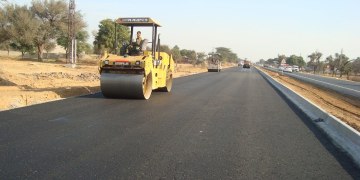Kenya Commercial Bank (KCB) is set to auction the assets of road construction firm Nyoro Construction Company—owned by Kenyan tycoon Njoroge Njuguna—following a loan default triggered by pending bills with the state.
A High Court ruling, delivered by Justice Peter Mulwa, followed an application filed in May 2024 in which Nyoro Construction sought interim injunctive relief to prevent KCB from attaching or selling its movable assets.Nyoro Construction said in its affidavit to the Court of Appeal that the default on its loan obligations was directly linked to delays by the Government of Kenya in settling payments for completed road construction projects.As of late 2024, the national and county governments owed a combined KSh 696 billion, with state corporations accounting for the bulk of arrears.
The road construction firm revealed in its court filings that it had arranged for the government to make direct remittances to the bank—some of which had been received—yet KCB still moved to auction its secured property.
It also claimed to have already repaid over Ksh 391 million, more than the principal of a 2005 credit facility and alleged illegal asset proclamation by Westminster Commercial Auctioneers.
KCB opposed the application, highlighting the existence of a previous case between the same parties, where the court had suspended a planned asset auction on condition that Nyoro pay Ksh 200 million within 14 days. Despite partial payments totaling over Ksh 278 million, the bank maintained that Nyoro still owed more than Ksh 860 million and remained in default.
“It is undisputed that the Plaintiff acknowledges its indebtedness and has defaulted in repayment. The Defendant, as chargee, is entitled to realize the securities, and a defaulting chargor cannot seek equitable relief to prevent a lawful sale unless the full debt is settled. Equity does not aid defaulters,” Justice Mulwa ruled.
By dismissing the application, the court cleared the path for KCB to proceed with the asset sale to recover the outstanding loan. The ruling effectively reinforces that borrowers bear the risk of delayed state disbursements, even where government contracts are the primary revenue stream.
“It may be true that the applicant’s default… has been contributed to by the failure of the Government of Kenya to pay… but that per se is not sufficient ground to warrant grant of an injunction,” The Court of Appeal ruled in February.
The decision is a setback for Nyoro Construction, which has been navigating turbulent financial waters. The company was founded in 1983 racking up diverse projects across the region, ranging from highway construction to multi-billion shilling real-estate; especially during the Uhuru Kenyatta presidency.
The company was in the spotlight in 2018 when former President Uhuru Kenyatta to issued a 30-day ultimatum for the completion of the Gitugi-Njumbi-Mioro road project in Murang’a County. Nyoro Construction Company, which was awarded the project in 2012, was unable to complete the project before the deadline and the residents were frustrated.
The Scourge of Pending Bills
As of late 2024, the national and county governments owed a combined KSh 696 billion, with state corporations accounting for the bulk of arrears. However, the government has shown greater reluctance in settling pending bills after claiming it is working carefully to avoid paying out fraudulent claims.
Earlier this year, Treasury Cabinet Secretary John Mbadi said that nearly half of Kenya’s verified pending government bills have been deemed inauthentic, revealing major discrepancies in claims submitted for compensation.
The findings, stemming from a special committee review, cast doubt on the legitimacy of billions owed to suppliers and contractors. Of the Ksh475 billion reviewed, only Ksh206 billion was confirmed genuine, spotlighting a widespread issue in public sector financial accountability.


